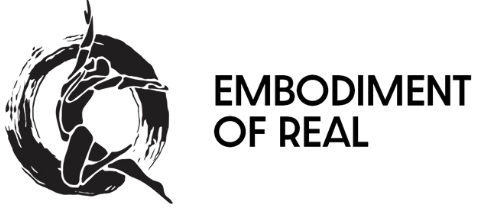THEORY
Study the intricacies of subjectivity, mechanisms of psyche, cultivation process, and gain an interdisciplinary perspective on the arts of embodiment.
THEORY
Study the Intricacies of Subjectivity, Mechanisms of Psyche, Cultivation Process, and Gain Interdisciplinary Perspective on the Arts of Embodiment
Courses
The Theory program includes two courses consisting of video lectures and talks
Price Options
All courses / Each course separately
The price includes all studying materials and access to the class chat for a year
The price includes all studying materials and access to the class chat for a year
Full access
All lessons will be saved in your private account once you've completed a given course. One video opens each week
Program
THEORY

Contingency of Master Signifiers


Work with(in) the Real

Oedipus Complex

The Subject of the Unconscious
Psychotic Subjectivity
Non-neurosis
Desire
Borderline
Trauma

Theory of the Drive

The Mirror Stage

Objet a

Fundamental Fantasy
Psychoanalysis and Cultivation


Autistic Subjectivity

The Borromean Knot

Neurotic Subjectivity

Hysteria

Obsession


Bipolar


Psychosis - Triggering


Discourse Theory

Perverted Subjectivity
Mechanisms of Psyche
Foundational concepts and working principles of Lacanian psychoanalytic praxis as well as bridging of those concepts with Buddhist and Daoist approaches to heartmind:

Symptom Structure and the Five Hindrances


The Ego

Critique of Psychoanalysis

Autism and Wuxing
Psychosis, Phlegm Misting the Mind and Qi Deviation
Beyond Psychic Causality


The Subject of Emptiness

Sexuation
Free Association


Grief, Mourning and Melancholia


Dreamwork

Difference in Methods (of Spiritual Practice)

Qigong and Subjective Destitution

Anxiety in the Real and the Gradual Path

Two Kinds of Delusion (within Neurosis and Psychosis respectively)

Interdisciplinarity within Cultivation
This section contains theoretical materials covering the field of cultivation from the standpoint of cross-referential critique and practical insight developed by Evgenii to date. Materials here include:
Cultivation Theory

Spiritual Delusion

Subjective Structure and Wuxing (Five Elements)

‘Being Myself’ and True Refuge

Missing Piece of Cultivation

Difference between Qigong and Therapy

Differentiating between Psyche, Soul and Spirit

Uncreated Joy
Cultures and Core of Spiritual Traditions


Five Spiritual Faculties
Books
Embodiment of the Real
Applying the Noble Eightfold Path of the Buddha as a method I seek to alleviate and integrate these psychophysical processes, primarily via practices of insight meditation and movement arts – taijiquan, parkour, martial arts, swimming and movement improvisation.
This thesis provides phenomenological accounts pertaining to subjectivity in the form of creative writings describing my personal experience in undertaking the above practices. In addition to that, videos of movement practices and performances are to be provided as creative works.
This thesis provides phenomenological accounts pertaining to subjectivity in the form of creative writings describing my personal experience in undertaking the above practices. In addition to that, videos of movement practices and performances are to be provided as creative works.
In Lacanian psychoanalysis the Real stands for a register of the psyche that resists symbolisation. It may erupt through contingent traumatic events, unbearable bodily intensities, anxiety, or death. How is one able to process these painful events? Here, I refer to the tragic event of my father’s brain stroke, which turned him half-paralysed, our family breakdown and subsequent passing of both of my parents.
This interdisciplinary practice-based research seeks to properly understand the above sorrowful events of eruption of the Real. My goal is to establish a plane of knowledge that allows viewing the psychophysical processes of encountering the Real positively, and to develop skilful means of integrating it into the subject’s life.
This interdisciplinary practice-based research seeks to properly understand the above sorrowful events of eruption of the Real. My goal is to establish a plane of knowledge that allows viewing the psychophysical processes of encountering the Real positively, and to develop skilful means of integrating it into the subject’s life.
Interdisciplinary Study of Subjectivity, Trauma and Spiritual Cultivation
The Forsaken Horizon
Foundations of spiritual practice within Theravadin Buddhist and Quanzhen Daoist traditions with reference to Lacanian psychodiagnostics
The first part of this book shows how the Lacanian psychoanalytic theory of subjectivity can nuance, complement, and be nuanced by the Theravadin Buddhist way of training the mind. In particular, four subjective structures: neurotic, perverted, psychotic and autistic, are differentiated and elaborated upon in hindsight of cultivation methods applicable to them.
The second part focuses on how the Quanzhen Daoist approach to developing the body and Qi can prepare any subject for spiritual cultivation. All three traditions are examined with cross-referential critique in order to highlight the virtue of skilful interdisciplinary practice, which is quite different from simply mixing the systems.
The second part focuses on how the Quanzhen Daoist approach to developing the body and Qi can prepare any subject for spiritual cultivation. All three traditions are examined with cross-referential critique in order to highlight the virtue of skilful interdisciplinary practice, which is quite different from simply mixing the systems.
As an insider to all three traditions, I present a practice-oriented outlook, rather than academic research, so that other practitioners may enrich their methods. Non-practitioners can also find the book accessible since the theory is unpacked gradually in comprehensive terms.
The exposition includes a critique of the mainstream mental health care field from the standpoint of the above traditions. It concludes with the outline and ways of dealing with the main hindrance on the path of cultivation – spiritual delusion.
The exposition includes a critique of the mainstream mental health care field from the standpoint of the above traditions. It concludes with the outline and ways of dealing with the main hindrance on the path of cultivation – spiritual delusion.
Copyright © 2024 Embodiment of Real - All Rights Reserved
The site uses personal data collection instruments
Confidentiality and Data Protection Policy
The site uses personal data collection instruments
Confidentiality and Data Protection Policy



